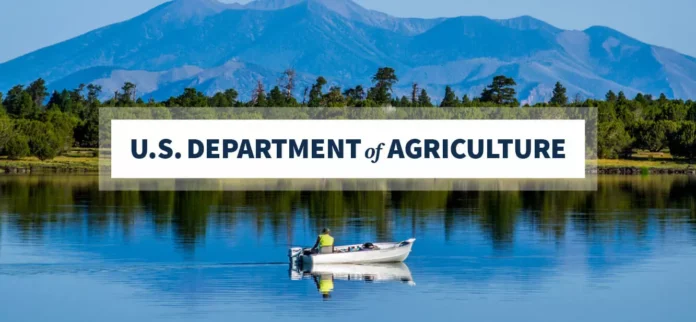WASHINGTON, Feb. 5, 2024 – Today marks a significant milestone in the fight against climate change as we celebrate the 10th anniversary of the creation of the U.S. Department of Agriculture’s (USDA) regional Climate Hubs. These hubs were established to provide support and resources to agricultural producers and rural communities in making climate-informed decisions. As we reflect on the past decade, Agriculture Secretary Tom Vilsack is highlighting the crucial role these regional climate centers have played in helping farmers, ranchers, forest landowners, and communities address the threats of climate change.
The establishment of the Climate Hubs in 2014 was a proactive step taken by the USDA to address the growing concerns of climate change and its impact on the agricultural sector. With the support of President Biden’s historic climate agenda, these hubs have become even more crucial in providing the necessary tools and information to mitigate the effects of climate change on our farmers and rural communities.
Over the past 10 years, the Climate Hubs have been working tirelessly to bridge the gap between science and agriculture. They have been instrumental in providing farmers and ranchers with the latest research and data on climate change, helping them make informed decisions about their operations. By collaborating with universities, government agencies, and other stakeholders, the Climate Hubs have been able to develop innovative solutions to address the challenges posed by climate change.
One of the key initiatives of the Climate Hubs has been to promote sustainable agriculture practices. By encouraging the use of cover crops, conservation tillage, and other sustainable techniques, the hubs have helped farmers reduce their carbon footprint and increase their resilience to extreme weather events. These practices not only benefit the environment but also improve the long-term profitability of farming operations.
The Climate Hubs have also been working closely with forest landowners to promote sustainable forestry practices. With the increasing frequency of wildfires and other natural disasters, it has become crucial to manage our forests in a way that reduces the risk of these events. The hubs have been providing technical assistance and resources to help forest landowners implement sustainable practices that not only protect their land but also contribute to mitigating the effects of climate change.
In addition to supporting farmers and forest landowners, the Climate Hubs have also been actively engaged in helping rural communities adapt to the changing climate. By providing resources and information on climate-resilient infrastructure and disaster preparedness, the hubs have been helping these communities become more resilient to the impacts of climate change. This has been especially crucial in light of the recent extreme weather events that have devastated many rural areas.
As we look towards the future, the Climate Hubs will continue to play a vital role in supporting our agricultural sector and rural communities. With President Biden’s ambitious climate agenda, the hubs are poised to become even more effective in addressing the challenges of climate change. The USDA has committed to investing in research and innovation to develop climate-smart agriculture practices and technologies, and the Climate Hubs will be at the forefront of implementing these solutions.
The success of the Climate Hubs over the past decade is a testament to the USDA’s commitment to addressing the threats of climate change. By bringing together science, agriculture, and rural communities, the hubs have been able to make a significant impact in mitigating the effects of climate change. As we celebrate their 10th anniversary, let us recognize the crucial role these regional climate centers play in building a more sustainable and resilient future for our farmers, ranchers, and rural communities.
In conclusion, the establishment of the Climate Hubs by the USDA 10 years ago was a visionary step towards addressing the challenges of climate change. With the support of President Biden’s climate agenda, these hubs have become even more effective in providing the necessary resources and support to our agricultural sector and rural communities. As we continue to face the impacts of climate change, the Climate Hubs will be a crucial ally in our fight to build a more sustainable and resilient future.

